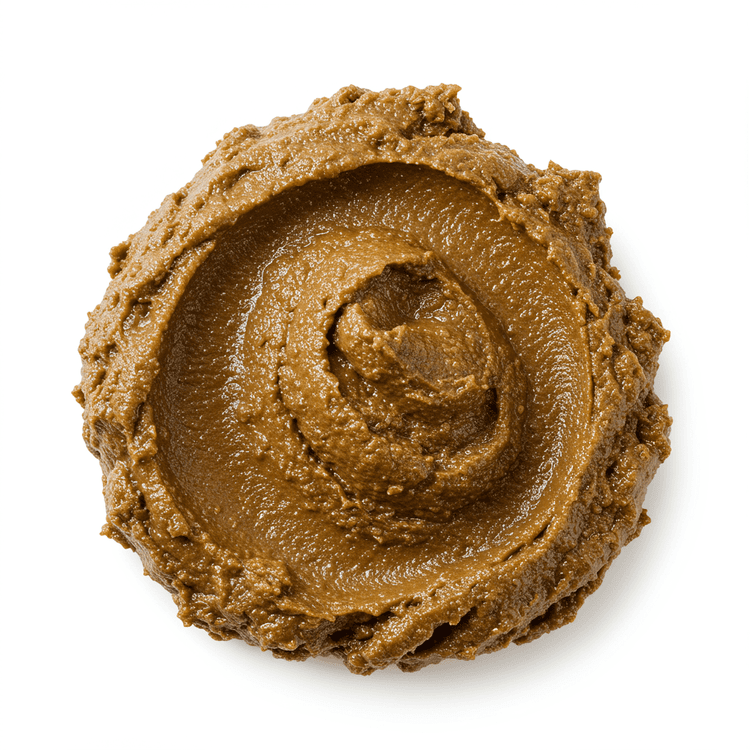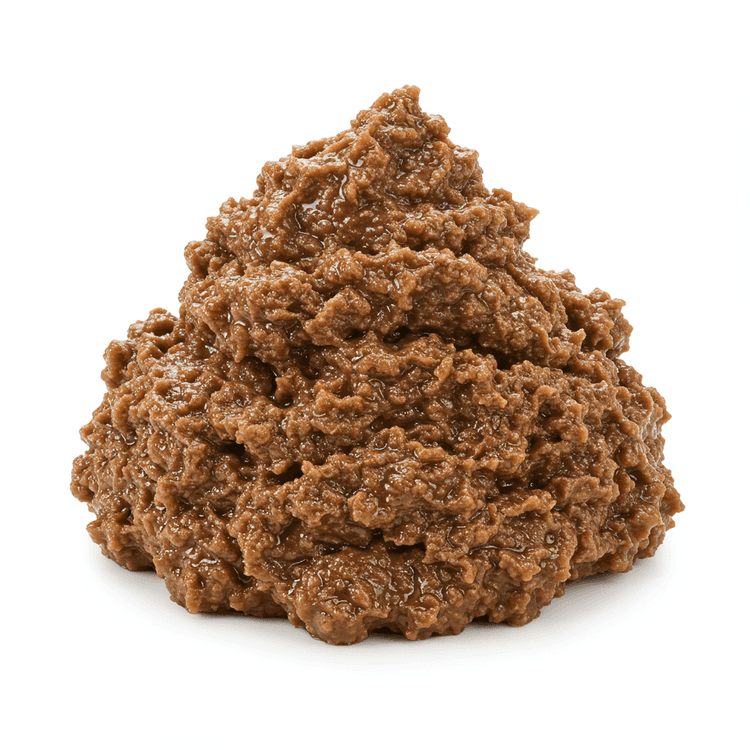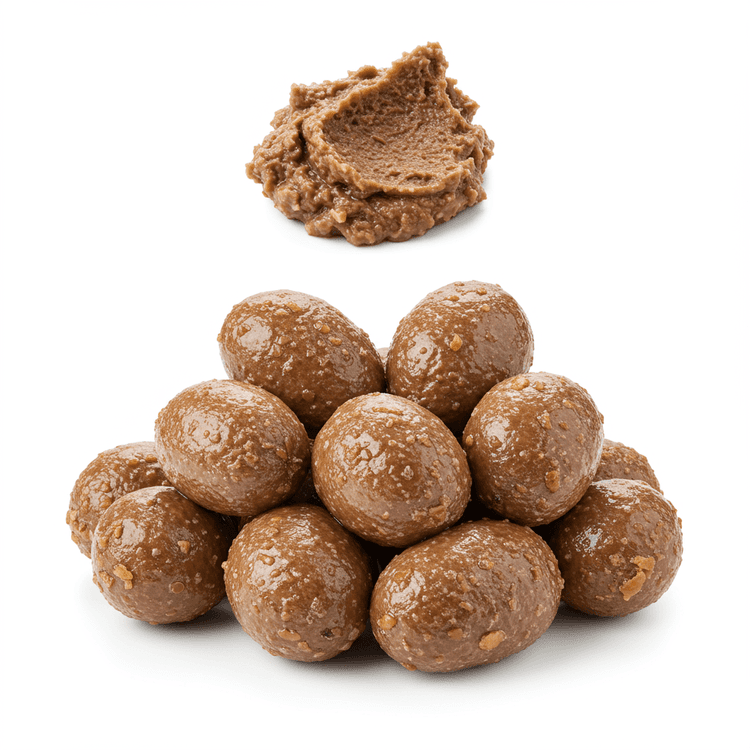
Olive Paste
Olive paste, also known as tapenade, is a flavorful spread made primarily from finely crushed or pureed olives. It boasts a robust, savory, and intensely olive-forward flavor, often with briny and slightly bitter notes depending on the olive variety used. The texture is typically smooth and spreadable, though some variations may retain a slightly coarser consistency. Olive paste generally exhibits a dark brown or black color, sometimes with greenish hues, reflecting the color of the olives used in its preparation. It is a popular ingredient for adding Mediterranean flavor to various dishes.
Common Uses
- Olive paste is popularly used as a flavorful spread for crackers, bread, and crostini, offering a quick and easy appetizer option.
- Olive paste can be incorporated into pasta sauces to add a rich, briny depth of flavor, enhancing simple tomato-based or creamy sauces.
- As a topping for pizzas and flatbreads, olive paste contributes a salty, savory element that complements cheeses and other toppings.
- Olive paste serves as a delicious filling for sandwiches and wraps, providing a Mediterranean twist to standard lunch options.
- Add a spoonful of olive paste to dips like hummus or white bean dip to enhance flavor profiles. It can offer a savory, briny counterpoint.
- Mix olive paste into dressings and marinades for meat, fish, or vegetables. It adds unique umami and salty characteristics to each dish.
Nutrition (per serving)
Nutrition (per serving)
Calories
207.0kcal (10.35%)
Protein
1.4g (2.86%)
Carbs
2.9g (1.04%)
Sugars
0.0g
Healthy Fat
17.9g
Unhealthy Fat
2.9g
% Daily Value based on a 2000 calorie diet
Nutrition (per serving)
Calories
207.0kcal (10.35%)
Protein
1.4g (2.86%)
Carbs
2.9g (1.04%)
Sugars
0.0g
Healthy Fat
17.9g
Unhealthy Fat
2.9g
% Daily Value based on a 2000 calorie diet
Health Benefits
- Rich in antioxidants, helping to protect cells from damage.
- Source of healthy monounsaturated fats, supporting heart health.
- May have anti-inflammatory properties, potentially reducing the risk of chronic diseases.
- Provides essential minerals like iron and calcium, crucial for overall well-being.
- Contributes to digestive health due to its fiber content.
- Can help lower LDL cholesterol levels, promoting cardiovascular health.
Substitutes
Chefadora AI is here.
Experience smarter, stress-free cooking.
Storage Tips
Olive paste should be stored in the refrigerator after opening to maintain its freshness and prevent spoilage. Ensure the lid is tightly sealed to prevent air exposure. To further extend its shelf life, you can add a thin layer of olive oil on top of the paste before refrigerating. Properly stored, olive paste can last for several weeks in the refrigerator.
Marnirni-apinthi Building, Lot Fourteen,
North Terrace, Adelaide, South Australia, 5000
Australia


